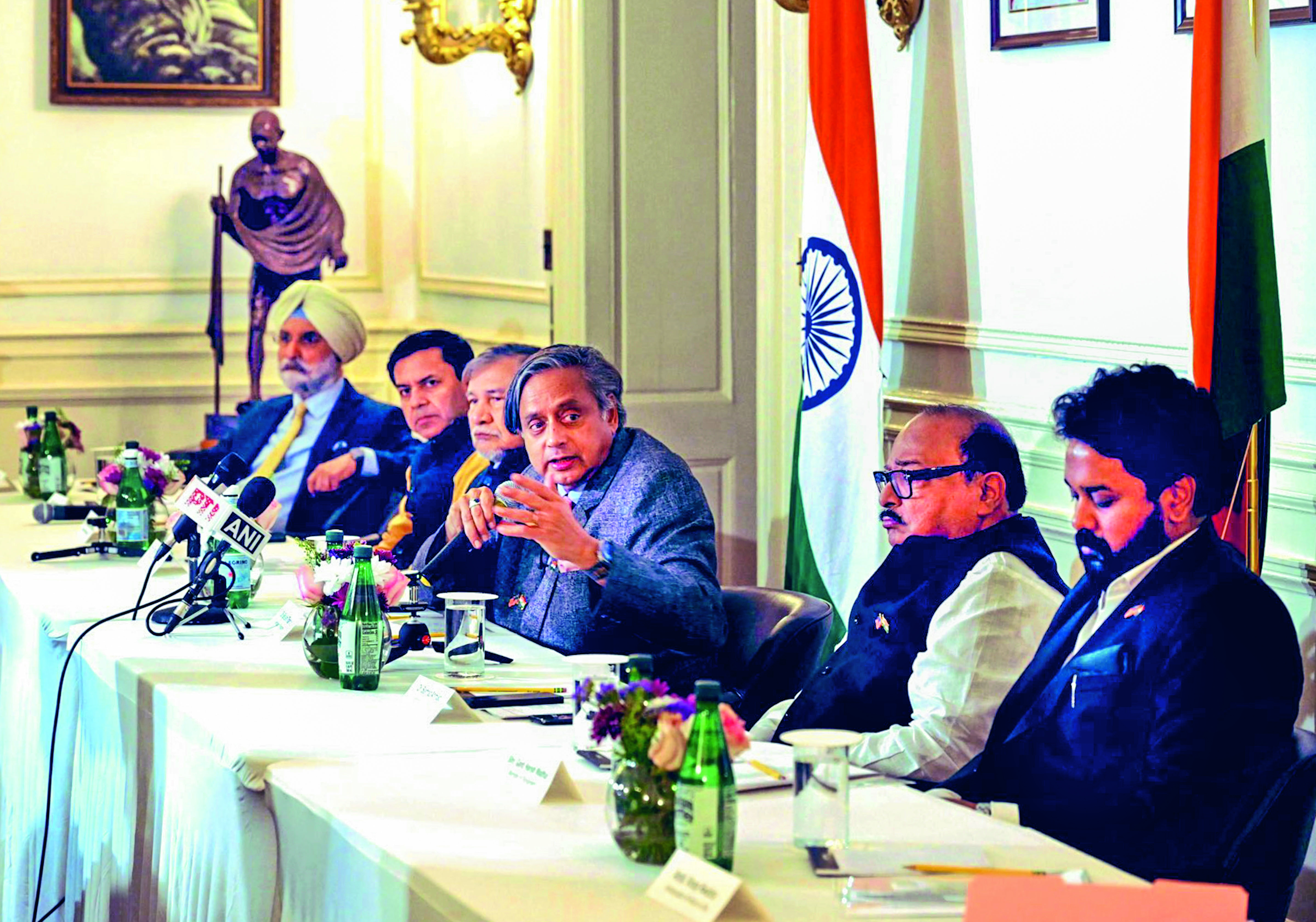
New Delhi, June 15 -- India's recently concluded proactive exercise in successfully dispatching several high-level parliamentary delegations to different countries of the world in order to expose Pakistan for its terror acts behind the Pahalgam attack seems to be paying dividends. The visibility of these delegations in Europe, South American nations, and the Islamic world, in addition to Japan, South Korea, Singapore, Indonesia, and Malaysia, was prominent, and the arguments put forward have been convincing and realistic. This endeavour has definitely put Pakistan on the back foot, which, on second thoughts, also decided to send its own diplomatic teams, apparently in a failed bid to show India in a dim light.
For example, Pakistan tried to derail the Indian delegation's visit to Malaysia, citing Islamic solidarity, but Kuala Lumpur (KL) categorically rejected Islamabad's interference. The Pakistani embassy in KL had urged Malaysian officials to cancel the Indian delegation's programmes, but this did not work, and the visiting delegation received full support. All programmes of the delegation proceeded as planned. The development is being seen as a huge diplomatic snub to Islamabad and a triumph for the Indian side. The Indian delegation comprised BJP MPs Aparajita Sarangi, Brij Lal, Pradan Baruah, and Hemang Joshi, Trinamool's Abhishek Banerjee, CPM's John Brittas, JD(U)'s Sanjay Jha, Congress' Salman Khurshid, and former diplomat Ambassador Mohan Kumar.
Besides Malaysia, the same delegation visited Indonesia, South Korea, Japan, and Singapore. It was one of the seven delegations that travelled abroad to expose Pakistan's role in terror attacks on Indian soil and articulate the Indian position after the Pahalgam terror attack that killed 26 innocents. Four or five important points emerged from the visit. Firstly, the all-party delegation sent by the government delivered a strong message that the entire country stands united on this issue against terrorism. Secondly, countries across the world unequivocally condemned the April 22 Pahalgam terror attack and offered condolences to all 26 victims who died in the massacre. Thirdly, India only targeted terrorist centres and camps in Pakistan and Pakistan-occupied Kashmir (PoK) with restraint and precision strikes. Fourth, flights have now resumed in Jammu and Kashmir. The delegations also prevailed upon the hosts to put Pakistan under the FATF (Financial Action Task Force) watch list for putting the hostile neighbour on a tight leash.
The All-Party Delegations, on their outreach assignments, projected India's national consensus and resolute approach to combating terrorism in all forms and manifestations and carried forth to the world India's strong message of zero tolerance against terrorism. It may be recapitulated that Operation Sindoor was launched on May 7, targeting terror bases in Pakistan and PoK in retaliation for the deadly Pahalgam terror attack on April 22. Under the operation, precision attacks targeted terror infrastructures deep inside Pakistan and PoK, eliminating over 100 terrorists linked to Jaish-e-Mohammed (JeM), Lashkar-e-Taiba (LeT), and Hizbul Mujahideen (HM).
However, on this diplomatic mission, there were some initial and minor hiccups experienced by the Indian parliamentary delegation to Colombia when it offered condolences to Pakistan following India's military strikes in response to a terror attack in Kashmir. Congress MP Shashi Tharoor, who led the delegation to the Colombian capital Bogota, expressed his displeasure and launched a massive counter-narrative, putting Colombia on the defensive-a move that eventually paid off. Retracting its earlier statement immediately, Colombia's Vice Foreign Minister, Rosa Yolanda Villavicencio, backtracked on the earlier "condolence" statement during talks with the Indian delegation. Amending her earlier remark, she now said that Colombia was very confident that, with the explanation they received and the detailed information they now had regarding the real situation, the conflict, and what happened in Kashmir, things stood corrected. The Vice Minister, as well as other authorities, saw huge merit in the Indian arguments and were quick to withdraw the statement they had made earlier. They also expressed full sympathy and understanding with India's position. This proves that the arguments put forward strongly by the Indian side resonated well with the countries visited, and the mission was almost as accomplished as Operation Sindoor.
Now that diplomatic endeavours have been achieved with reasonable success, a few points merit attention to make the country safe and secure from Pakistan's evil designs. In all likelihood, the notorious Inter-Services Intelligence (ISI) will intensify its activities with renewed ferocity, targeting Indian infrastructure and other locations. ISI, emboldened by Field Marshal (FM) Asim Munir's acerbic anti-India and anti-Hindu statements in April this year, will try to activate its sources for the collection of hard intelligence vis-a-vis Indian security interests. Therefore, a sharp lookout for any ISI-sponsored spy network is strongly called for. Pakistan's intelligence and security agencies will, however, choose the timing of their convenience, and we should not think that, after the diplomatic efforts, Pakistan will stay quiet or heed any international reprimands or efforts of the FATF for tighter superintendence. Pakistan will ignore all these and will try to hurt Indian interests whenever any opportunity arises. In spite of the threat of full-scale or limited military escalation, it might resort to covert operations, including fomenting communal disturbances in Kashmir and other sensitive places, giving a spurt to cross-border terrorism and encouraging infiltration for subversive activities.
On the external front, Pakistan will also try to whip up support from Islamic countries, including Bangladesh, in order to alienate India. In sum, therefore, an all-round vigil and hawkish eye on our western neighbour is called for to thwart its blueprint for further aggravation of terror-linked activities.
The writer is a retired IPS officer, Adviser NatStrat, and a former National Security Advisor in Mauritius. Views expressed are personal
Published by HT Digital Content Services with permission from Millennium Post.
